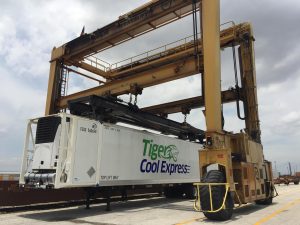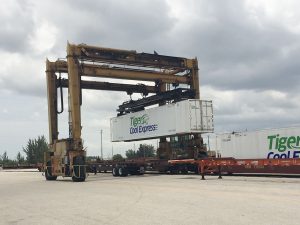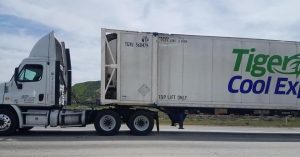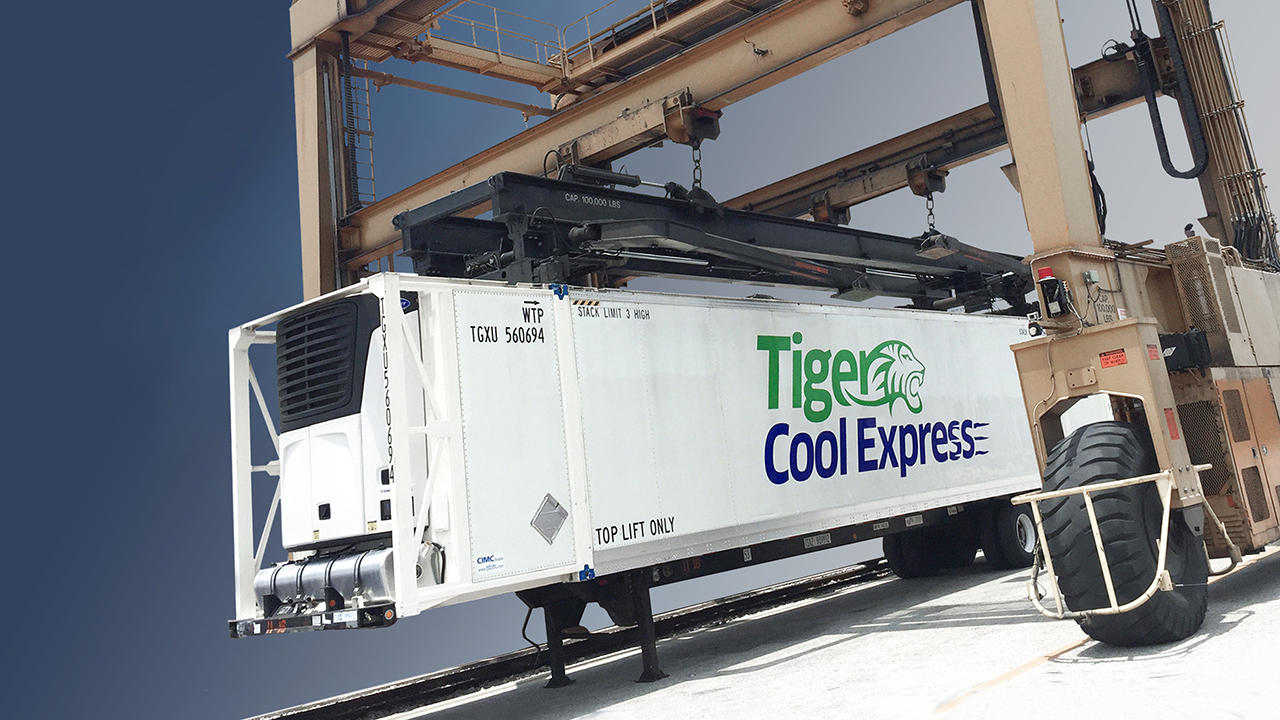Tiger Cool Express Shutdown: The Unexpected End of a Promising Journey

In a surprising twist, the Tiger Cool Express Shutdown has left the logistics industry in disbelief.
In a surprising twist, the Tiger Cool Express Shutdown has left the logistics industry in disbelief. This leading intermodal firm, known for its specialization in temperature-controlled freight, announced its immediate cessation of operations just six months after unveiling an ambitious expansion deal. For more insights into the challenges facing the logistics industry, explore this page.
What Led to the Sudden Shutdown?
Jared Nye, the former vice president of sales for Tiger Cool Express, recently took to LinkedIn, revealing his job hunt and confirming the company’s abrupt closure. The Journal of Commerce has reported that Tiger Infrastructure Partners, the private equity group behind the intermodal provider, withdrew its financial support. This unexpected move resulted in the company’s shutdown last Tuesday, leaving over 50 employees jobless. To understand more about company closures and their impact, check out this page.
Financial Struggles Preceding the Shutdown

The unexpected move resulted in the company’s shutdown last Tuesday, leaving over 50 employees jobless.
A closer look reveals that Tiger Cool Express had been grappling with financial challenges leading up to its sudden closure. The company had refinanced its equipment with Wells Fargo Bank a few years prior. However, the refrigerated market faced significant setbacks last spring, causing a substantial drop in volumes. This downturn played a pivotal role in Tiger Cool Express defaulting on its loan payments to Wells Fargo. As a result of breaching its financial covenants due to missed payments, Wells Fargo demanded the return of the leased equipment. For more news on financial challenges faced by companies, visit this link.
The Company’s Legacy
Tiger Cool Express was renowned for owning approximately 700 temperature-controlled intermodal containers. They played a pivotal role in transporting products from Washington and Oregon on the BNSF Railway, as highlighted by the Kansas City Business Journal. To dive deeper into the topic of BNSF and its role in the global context, follow this link or stay abreast of the latest trends shaping the transportation sector, click here.
Enjoying our insights?
Subscribe to our newsletter to keep up with the latest industry trends and developments.
Stay InformedRecent Partnerships and Ventures Before Shutdown
Only a month ago, Union Pacific had declared a collaboration with Tiger Cool Express. This partnership aimed to reintroduce temperature-controlled intermodal rail service in eastern Washington state. Stay updated on the latest trends in partnerships across various contexts, check out this link.
The Company’s Expansion Plans Derailed

A closer look reveals that Tiger Cool Express had been grappling with financial challenges leading up to its sudden closure.
In a press release from January, Tiger Cool Express had shared its plans to acquire the former Cold Connect warehouse and property. They intended to establish an adjacent intermodal ramp in Wallula, Wash. This lease-purchase agreement with Union Pacific Railroad was finalized on Dec. 27. For additional insights into the role of intermodal transportation, visit this link or to understand the strategies being employed in strategic expansion to optimize outcomes, explore this link.
The Pacific Northwest Vision
Initially, the company had plans to offer services between Wallula and the Northwest Seaport Alliance on-dock facilities. They also aimed to connect Wallula with Chicago, Ill., using their refrigerated domestic containers. Tiger Cool Express had foreseen its service scope broadening to other markets, including the Interstate-5 corridor and Mexico.
The Aftermath and Hope for the Future

Tiger Cool Express was renowned for owning approximately 700 temperature-controlled intermodal containers.
The sudden shutdown has left many questions unanswered. Employees, stakeholders, and industry insiders are eagerly awaiting a statement from Tiger Cool Express’s management team or Tiger Infrastructure Partners to shed light on the reasons behind the company’s closure. Patrick Reay, Executive Director at the Port of Walla Walla, remains hopeful, expressing his desire for new investors to step in and revive the concept, emphasizing its potential benefits for the Northwest.
CEO’s Statement Before the Shutdown
“Despite our consistent growth and fleet enhancement, we recognize the unparalleled potential the Pacific Northwest presents for our company,” remarked Steve Van Kirk, Tiger Cool Express’s CEO, in the January press release. He further added, “With a private intermodal ramp, we can cater to our domestic customer base and simultaneously expand our services to a new community of stakeholders.”
7 Shocking Facts About the Tiger Cool Express Shutdown
- Financial Turmoil: Tiger Cool Express faced significant financial challenges, leading to defaulting on its loan payments to Wells Fargo.
- Abrupt Closure: The company announced its immediate cessation of operations just six months after revealing an ambitious expansion deal.
- Employee Layoffs: Over 50 employees were left jobless due to the sudden shutdown.
- Major Player: The company owned approximately 700 temperature-controlled intermodal containers and was a pivotal transporter on the BNSF Railway.
- Recent Partnerships: Just a month before the shutdown, Union Pacific had announced a collaboration with Tiger Cool Express.
- Derailed Expansion Plans: Despite announcing the upcoming opening of the Tiger Tri-Cities Logistics Center in Wallula, Washington, the company abruptly halted these plans.
- Silent Executives: Tiger Cool Express executives, including the CEO, CCO, and CSO, have remained silent post-shutdown, leaving many questions unanswered.
Explore External Resources and Insights:
- The Journal of Commerce: A reputable source for trade logistics that reported on the Tiger Cool Express shutdown. [https://www.joc.com/]
- BNSF Railway: Learn more about their mission, history, and the areas they cover. [https://www.bnsf.com/]
- Union Pacific: Offers more details on their partnerships and ventures, including the collaboration with Tiger Cool Express. [https://www.up.com/]
- U.S. Department of Transportation: Understand the regulations and laws in the specific field of transportation. [https://www.transportation.gov/]
- Intermodal Association of North America: Provides comprehensive insights into the significance of intermodal transportation. [https://www.intermodal.org/]
- Logistics Management: For more insights into the challenges facing the logistics industry, explore this comprehensive report. [https://www.logisticsmgmt.com/]


















